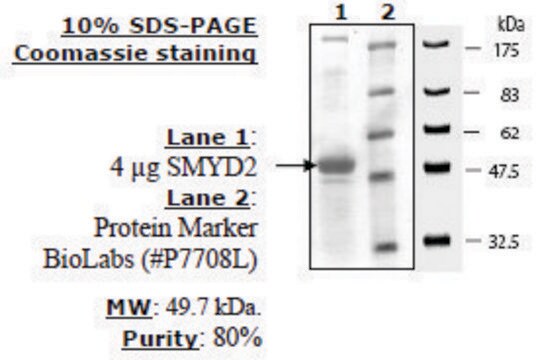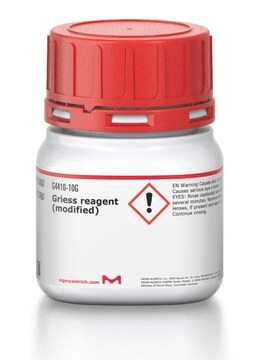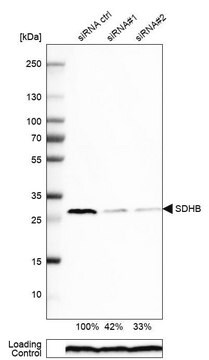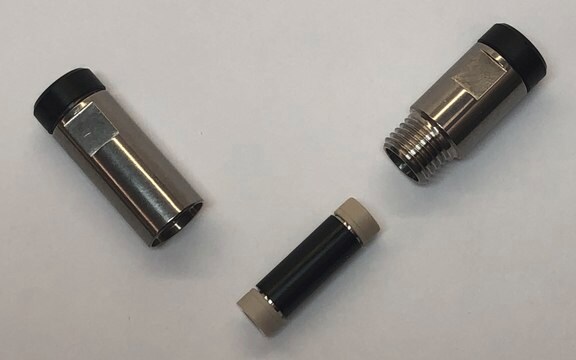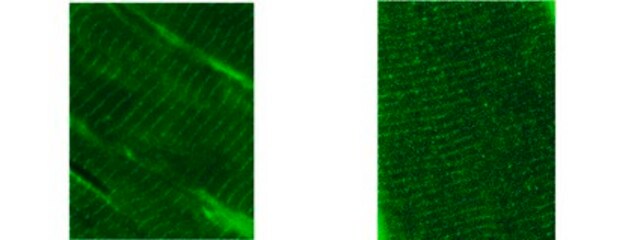SRP0153
SMYD3 (full length) Active human
recombinant, expressed in baculovirus infected insect cells, ≥50% (SDS-PAGE)
Synonym(s):
KMT3E, Lysine N-methyltransferase 3E, SET and MYND domain containing 3, ZMYND1, Zinc finger MYND domain-containing protein 1
About This Item
Recommended Products
biological source
human
recombinant
expressed in baculovirus infected insect cells
assay
≥50% (SDS-PAGE)
form
aqueous solution
mol wt
50 kDa
packaging
pkg of 20 μg
storage condition
avoid repeated freeze/thaw cycles
concentration
>0.02 mg/mL
NCBI accession no.
UniProt accession no.
shipped in
dry ice
storage temp.
−70°C
Gene Information
human ... SMYD3(64754)
General description
Application
Physical form
Preparation Note
Certificates of Analysis (COA)
Search for Certificates of Analysis (COA) by entering the products Lot/Batch Number. Lot and Batch Numbers can be found on a product’s label following the words ‘Lot’ or ‘Batch’.
Already Own This Product?
Find documentation for the products that you have recently purchased in the Document Library.
Our team of scientists has experience in all areas of research including Life Science, Material Science, Chemical Synthesis, Chromatography, Analytical and many others.
Contact Technical Service